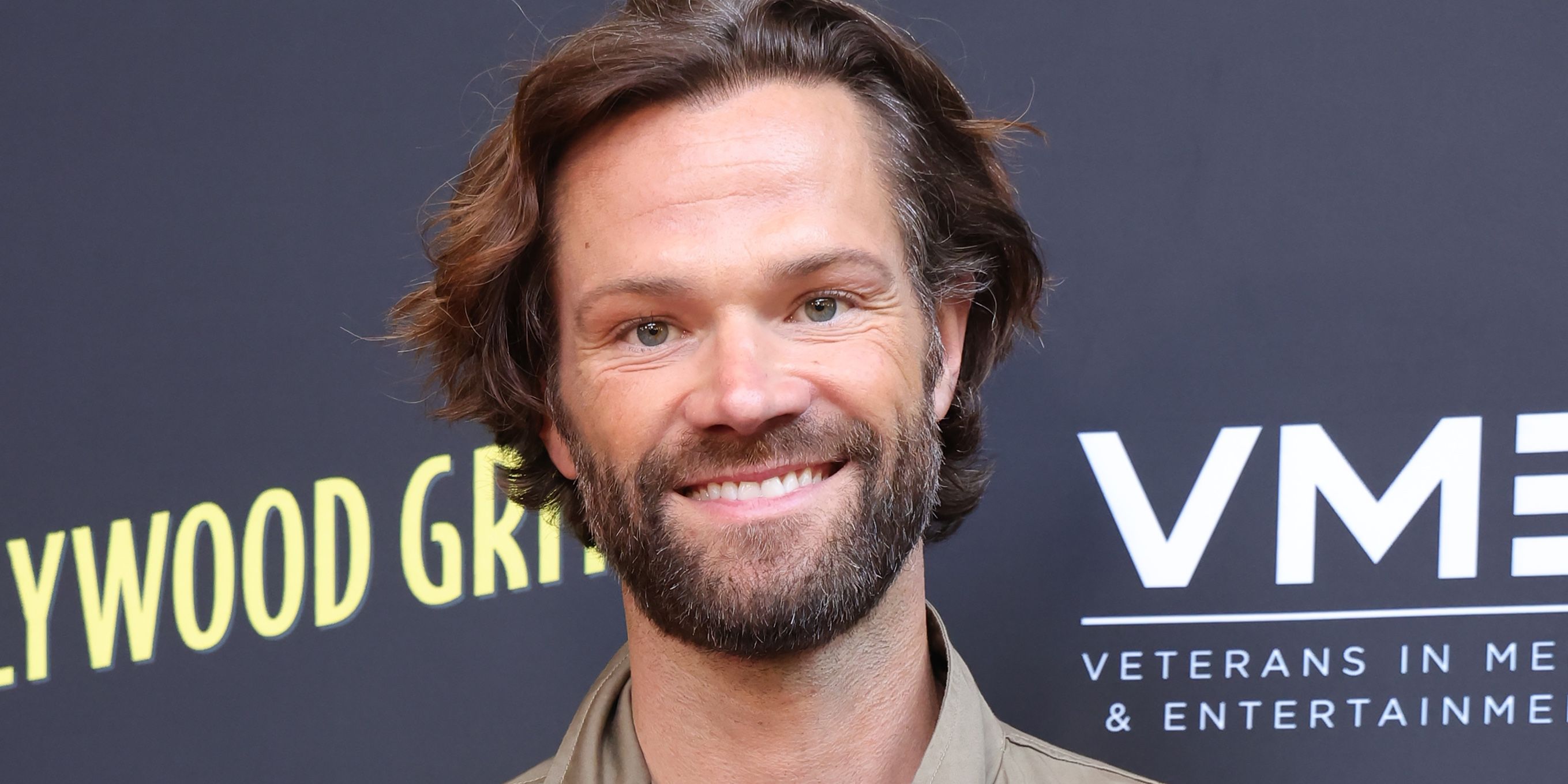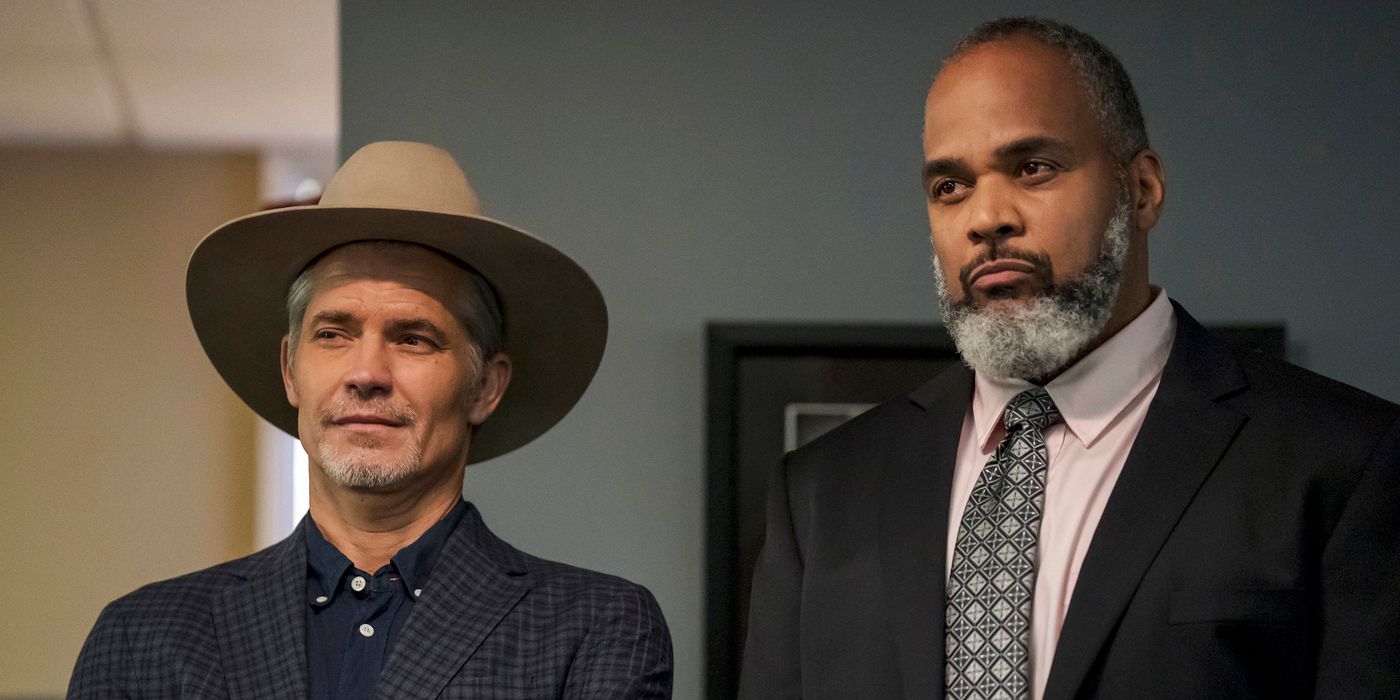
As a huge fan of Westerns, I’ve been really fascinated watching Jared Padalecki and Timothy Olyphant both bring something new to the genre on TV. Olyphant’s Raylan Givens in Justified and Justified: City Primeval is that classic, stoic U.S. Marshal – cool and controlled. Padalecki’s Cordell Walker, though, is a different beast. He’s a Texas Ranger who leads with compassion, and his struggles aren’t just physical, they’re deeply personal. Even though their shows are totally different in style and on different networks, both actors are really carrying the torch for the classic Western hero. They feel like two sides of the same coin – one focused on delivering justice, the other on finding redemption, and both showing strength through both silence and vulnerability.
When Justified first aired in 2010, it brought a seemingly outdated genre back to life. Set in contemporary Kentucky, the show reimagines the traditional cowboy as a complex man struggling with his own demons. Raylan Givens, with his iconic Stetson, is a tough, reserved lawman who always seems ready to fight. Actor Timothy Olyphant perfectly captures the essence of the Western hero, focusing on self-control, sharp humor, and internal struggles. In contrast, Jared Padalecki’s Walker takes a different approach. While Justified moves beyond the classic Western, Walker updates it with a focus on emotional depth. Cordell Walker isn’t the stoic hero of the past; he’s a man dealing with loss and trying to rebuild his life. The violence of the original Walker, Texas Ranger is replaced with self-reflection, therapy, and a focus on family. Together, Raylan and Cordell demonstrate how the TV Western has evolved from a gritty, tough genre to one that embraces vulnerability and emotional honesty.
The Western Continues to be An Evolving Genre
The Western is a surprisingly resilient genre on television, consistently reflecting our current concerns while still using iconic imagery like cowboy hats and lonely roads. Shows ranging from classics like Gunsmoke and Bonanza to more recent hits like Deadwood and Yellowstone adapt the Western’s core themes to fit the times. While earlier Westerns focused on expanding the frontier, modern ones explore the challenges of achieving justice and defining community. In the 1950s, characters like Marshal Matt Dillon represented a straightforward approach to law and order, emphasizing strength and control in a wild land. However, shows from the 2000s, such as Deadwood and Justified, offer a more complex view. Justified‘s Raylan Givens, inspired by Elmore Leonard’s writing, is a clever, modern gunslinger, and the show reimagines Kentucky as a morally decaying frontier where criminals often mirror Raylan’s own inner struggles. The setting itself, whether a classic desert landscape or the hills of Kentucky, remains powerfully evocative and expansive.
Shows like Longmire, Hell on Wheels, and Yellowstone explore the enduring legends of the West through the lens of modern policing and the influence of powerful corporations, all while examining the weight of family history. In these stories, guns represent a cowboy’s tradition and power, while a badge often symbolizes hidden corruption. Walker joins this trend, not by simply revisiting the past, but by bringing the Western genre back to life. Jared Padalecki successfully blends action with genuine emotion, proving that Westerns aren’t just for tough heroes and outlaws anymore. They can now connect with anyone grappling with loss, figuring out who they are, and dealing with the lasting effects of trauma passed down through generations—fathers, sons, and daughters alike.
Both Walker and Justified update the classic Western genre rather than completely reimagining it. They maintain the core themes of the Western while exploring modern issues: Walker focuses on individuality and disillusionment, while Justified looks at optimism and the search for connection in a fractured world. The Western endures because it reflects the fundamental contradictions within the American identity – the desire for freedom and the need for community. Through characters like Raylan and Cordell, the genre continues to resonate by capturing the changing values of the nation.
Justified’s Raylan Givens Proved the Western Was Still Alive
Timothy Olyphant’s portrayal of Raylan Givens in Justified expertly mixes charisma with a hint of danger. The show presents him as a modern take on the classic Western lawman – a character who believes in clear right and wrong, even when the world around him is complicated. Justified both celebrates Raylan as a hero and cautions against his methods. He embodies the strong, silent Western archetype, always armed and logical, but the show doesn’t glorify him. His use of violence always has consequences, impacting both the people of Harlan County and his own sense of morality. What makes the show so insightful is its suggestion that, when pursued by someone like Raylan, justice and revenge can be surprisingly similar. Olyphant’s performance elevates the Western hero to a thoughtful, almost contemplative level; he’s powerful and commanding, but always controlled and never overtly angry.
Returning in Justified: City Primeval, Raylan is more world-weary and subdued, his former self-control now tinged with sadness. The show shifts focus, becoming less about solving crimes and more about the struggle to impose order on chaos. Though the setting moves from Kentucky to Detroit, Raylan is still burdened by his past – his troubled daughter, his own choices, and the violence he’s capable of. Throughout both City Primeval and the original Justified, Olyphant portrays a hero who understands that victory doesn’t always mean doing what’s right. He brings to mind classic Western figures like Gary Cooper in High Noon and Clint Eastwood in Unforgiven, but offers a modern take on the archetype. Raylan is defined by his intelligence, dry wit, and ability to hold back, suggesting that true power comes not from commanding authority, but from self-control.
Jared Padalecki’s Cordell Walker Is the Emotional Cowboy for a New Generation
Jared Padalecki sees his character, Walker, as a man driven by emotion, not fear. A personal tragedy prompts the show to delve into themes of family, vulnerability, and the possibility of forgiveness. Rather than focusing on the traditional, solitary hero, ‘Walker’ explores how a man’s understanding of masculinity evolves through close relationships. Padalecki portrays Cordell not as a stoic law enforcer, but as a flawed individual who struggles, makes mistakes, and learns from them. His strength isn’t about giving orders, but about listening, offering support, and growing as a person. Ultimately, ‘Walker’ flips the classic Western narrative – instead of hiding their feelings, Cordell embraces them as a source of power.
The television show is evolving, and its dark, neo-noir style creates a striking contrast. While the show focuses on inner emotional struggles, its message remains powerfully relevant. Walker explores difficult topics like the lasting effects of trauma, the need for criminal justice reform, and finding strength during hardship – all seen through the eyes of a man discovering that kindness can be just as effective as force. This approach expands the traditional Western hero to include vulnerability as a source of power. Jared Padalecki’s performance updates the classic cowboy image while maintaining his core values. He’s still a man of action, but his greatest strength is now his ability to understand and connect with others, redefining what it means to be a strong man today.
Justified and Walker Are Two Different Versions of Modern Westerns
Both Justified and Walker demonstrate how the Western genre is changing while still staying true to its core themes. Raylan Givens, played by Timothy Olyphant, appeals to viewers who appreciate complex characters grappling with difficult questions of right and wrong, while Cordell Walker, played by Jared Padalecki, connects with those seeking stories of healing and emotional honesty. Both characters represent different sides of a classic Western archetype: the lawman facing internal struggles in a world that reflects them. Justified masterfully uses shades of gray, blurring the lines between justice and criminality, and builds suspense through what remains unsaid – Raylan’s quiet intensity and unspoken motivations.
Walker’s stories explore confession and open communication, portraying healing as something that begins with words. At their heart, these narratives emphasize community and the willingness to be emotionally vulnerable. This approach represents two key trends in Western storytelling: one focused on philosophical ideas, and the other on building emotional connections with the audience. The Western genre’s adaptability is what has allowed it to endure. It uniquely captures the American tension between individual strength and the need for community. Unlike traditional Western heroes who face challenges alone, Walker emphasizes sharing experiences with those we care about. Both approaches remind us that the ‘frontier’ isn’t a place, but rather a state of being where we confront our own values and emotions.
Jared Padalecki and Timothy Olyphant have become defining figures in modern Westerns. Padalecki’s character grapples with inner turmoil, while Olyphant’s struggles with understanding others. Both actors demonstrate that the Western genre thrives not by simply revisiting the past, but by evolving alongside its heroes. Timothy Olyphant’s Raylan Givens reflects the Western’s traditions – a character with a strong presence and a complicated sense of right and wrong. In contrast, Jared Padalecki’s Cordell Walker represents a new direction, a hero who leads through kindness and openness.
Though they’re different characters, both embody a strong, if flawed, sense of justice. The enduring appeal of Westerns lies in their ability to reflect the values of their era. Today, that means a call for both accountability and compassion, justice tempered with forgiveness. By showing characters like Raylan Givens putting away his gun and Cordell Walker opening up emotionally, the genre finds a balance between self-control and the possibility of making amends.
Read More
- All Golden Ball Locations in Yakuza Kiwami 3 & Dark Ties
- NBA 2K26 Season 5 Adds College Themed Content
- Hollywood is using “bounty hunters” to track AI companies misusing IP
- What time is the Single’s Inferno Season 5 reunion on Netflix?
- Mario Tennis Fever Review: Game, Set, Match
- He Had One Night to Write the Music for Shane and Ilya’s First Time
- Gold Rate Forecast
- Brent Oil Forecast
- Exclusive: First Look At PAW Patrol: The Dino Movie Toys
- Heated Rivalry Adapts the Book’s Sex Scenes Beat by Beat
2025-11-04 08:09